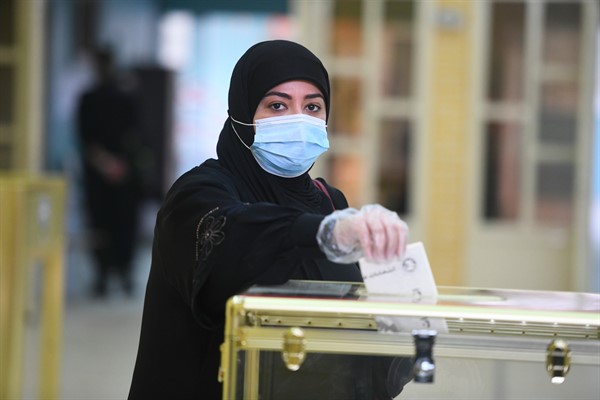There was a high level of public interest when Kuwaiti voters went to the polls on Dec. 5 to elect a new National Assembly, reflected in voter turnout of more than 60 percent, despite initial concerns that the coronavirus pandemic would suppress participation. Incumbent lawmakers fared poorly, with 24 of the 43 who were up for reelection losing their seats, as voters registered their dissatisfaction with the previous parliament. But while many commentators have described the results as a win for the opposition, which appeared to boost its numbers, the direction the new National Assembly will take remains to be seen.
Kuwait has the freest elections and the most active legislature of the Gulf Arab monarchies, although the ruling al-Sabah family, which has dominated the country’s politics since the 18th century, appoints the Cabinet, whose members are also part of the National Assembly alongside its 50 elected lawmakers. The emir has the power to dissolve the legislature as well, if arrangements for new elections are made. Notably, this month’s elections were the first since the death of the long-ruling emir, Sheikh Sabah al-Ahmed al-Jaber al-Sabah, in September. As expected, his half-brother and crown prince at the time, the 83-year-old Sheikh Nawaf al-Ahmed al-Jaber al-Sabah, took the throne, and the outgoing National Assembly approved his appointment of another half-brother, the 80-year-old Sheikh Mishal al-Ahmed al-Jaber al-Sabah, as the new crown prince. To maintain continuity and a smooth transition, Sheikh Nawaf had asked the sitting Cabinet to remain in place until after the election.
Following the announcement of election results, a decree from the emir confirmed that a new Cabinet would be installed by Dec. 15. The selection of ministers will be important in setting the stage for the new emir’s relations with parliament. Sheikh Nawaf most recently served as deputy chief of the Kuwaiti National Guard and has done stints as interior minister and defense minister, but he is a lower-profile politician than his predecessor. Sheikh Sabah served as foreign minister for four decades before becoming emir, so he was already familiar to many members of the political establishment, whereas less is known about what kind of relationship Sheikh Nawaf will have with the National Assembly.

